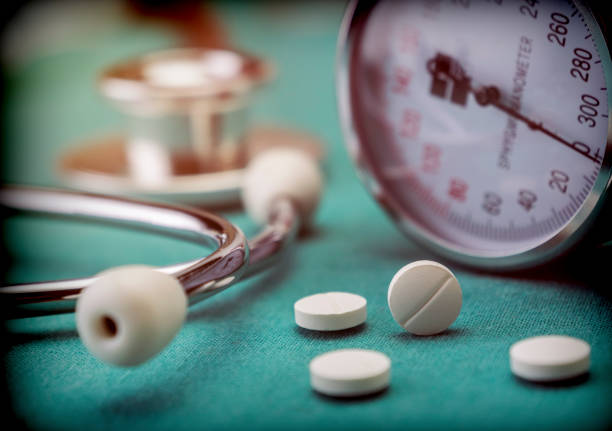What decongestant can I take that won't raise blood pressure?
Phenylephrine is the only other oral nasal decongestant known to be safe and effective for nonprescription use. It carries the same warnings as pseudoephedrine. Research on its ability to raise blood pressure is not as extensive as that on pseudoephedrine, but some data can be obtained.
Decongestants are used to reduce nasal stuffiness or congestion caused by allergies, the common cold or other infections. Nasal congestion occurs because of swelling of tissues lining the nose or the accumulation of secretions within the nose. Decongestants reduce congestion by acting directly on blood vessels in the nasal lining, causing the vessels to become narrower. This reduces swelling of the lining tissues. But decongestants may affect blood vessels outside the nose as well. When blood vessels are narrowed in other parts of the body, the blood pressure can increase. While the increase is usually small, it can be especially important in people who already have high blood pressure. All decongestants can potentially increase blood pressure, but it is less likely with nasal sprays or drops than with oral decongestants. Treating nasal congestion by natural methods or medicines that don't contain decongestants are the best ways to avoid any effects of decongestants on blood pressure.
Oral Versus Nasal Decongestants
When decongestants are taken by mouth as pills or liquids, they are first absorbed from the gut into the bloodstream. As they travel through the blood, the decongestants enter blood vessels throughout the body, causing the vessels to narrow and the blood pressure to rise. Pseudoephedrine (Silfedrin, Sudafed) and phenylephrine (Sudafed PE) are examples of oral decongestants.
When decongestants are used as nasal sprays or drops, they act primarily in the nose. A small amount of decongestant will be absorbed from the nose into the bloodstream, but the quantity reaching other areas of the body is much less than with oral decongestants. Oxymetazoline (Afrin, Dristan), phenylephrine (Neo-Synephrine), naphazoline (Privine) and propylhexedrine (Benzedrex) are nasal decongestants. The risk of increased blood pressure may be less with propylhexedrine than with the first 3 drugs.
Non-Decongestant Medicines
Medicines containing antihistamines are commonly used as alternatives to decongestants. Histamine increases nasal secretions, especially in people with allergies. By blocking the action of histamine, antihistamines can reduce secretions and decrease nasal congestion. Common over-the-counter antihistamines include chlorpheniramine (Chlor-Trimeton), loratadine (Claritin) and cetirizine (Zyrtec). Coricidin HBP and Nyquil HBP are product lines of cold and flu combination medicines marketed specifically for people with hypertension. Both contain antihistamines but no decongestants.
Non-steroidal anti-inflammatory medications, such as ibuprofen (Advil, Motrin) or naproxen (Aleve), reduce inflammation and secretions in the nose. These properties make them useful for nasal congestion. Nasal sprays containing corticosteroids, such as over-the-counter fluticasone (Flonase) or triamcinolone (Nasacort), can also reduce inflammation in the nose. They are most commonly used for nasal congestion due to allergies.
Natural Alternatives
A number of natural measures may help reduce nasal congestion. Inhaling steam from a vaporizer, pan of hot water or hot shower can help moisten the lining of the nose so any secretions that are present become more watery and easier to remove. Increasing fluid intake may also produce nasal secretions that are less thick and more watery. Some people find that hot or spicy fluids are particularly helpful. Saline nose drops or nasal sprays are made of salt water that can thin out secretions and possibly reduce swelling of the nasal lining. Nasal strips (Breathe Right) are another alternative, as they open the nostrils slightly to reduce nasal stuffiness.
Warnings and Precautions
The American Heart Association recommends that you always read the labels of any over-the-counter medications if you have high blood pressure, even if your pressure is controlled with medications. The labels of most medicines containing decongestants include a Food and Drug Administration (FDA)-required warning to consult with a doctor before using the medicine if you have high blood pressure. The FDA does not require this warning on the label of nasal propylhexedrine, but the manufacturer's information indicates that the drug should be used with caution in people with high blood pressure. If your doctor permits you to use a decongestant, be sure to follow the directions exactly and not use more than the recommended dose.
Can you take mucinex with high blood pressure?
Yes, it's fine for you to take Mucinex DM if you have high blood pressure. It contains two active ingredients: dextromethorphan and guaifenesin. Dextromethorphan is a cough suppressant.







